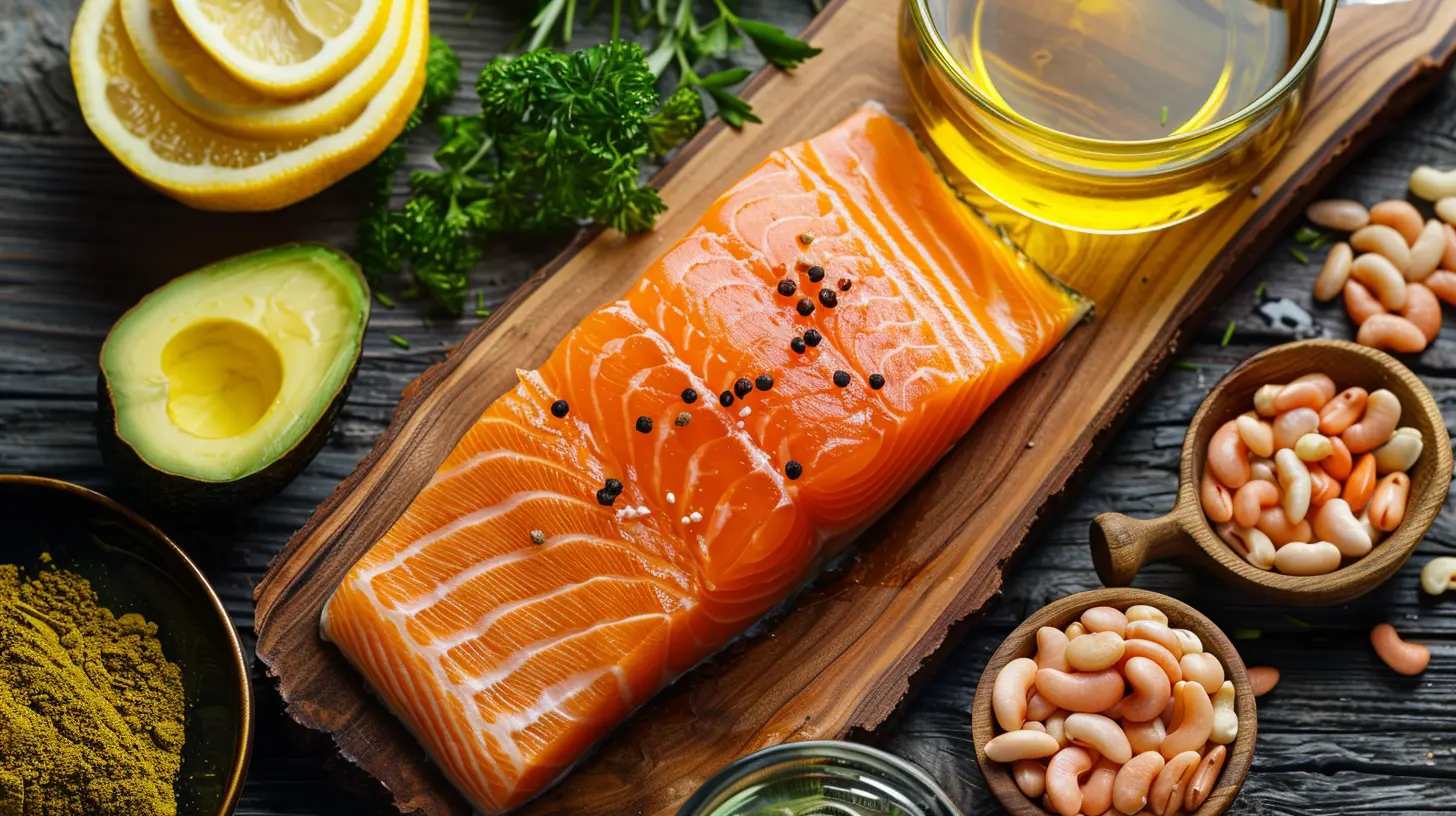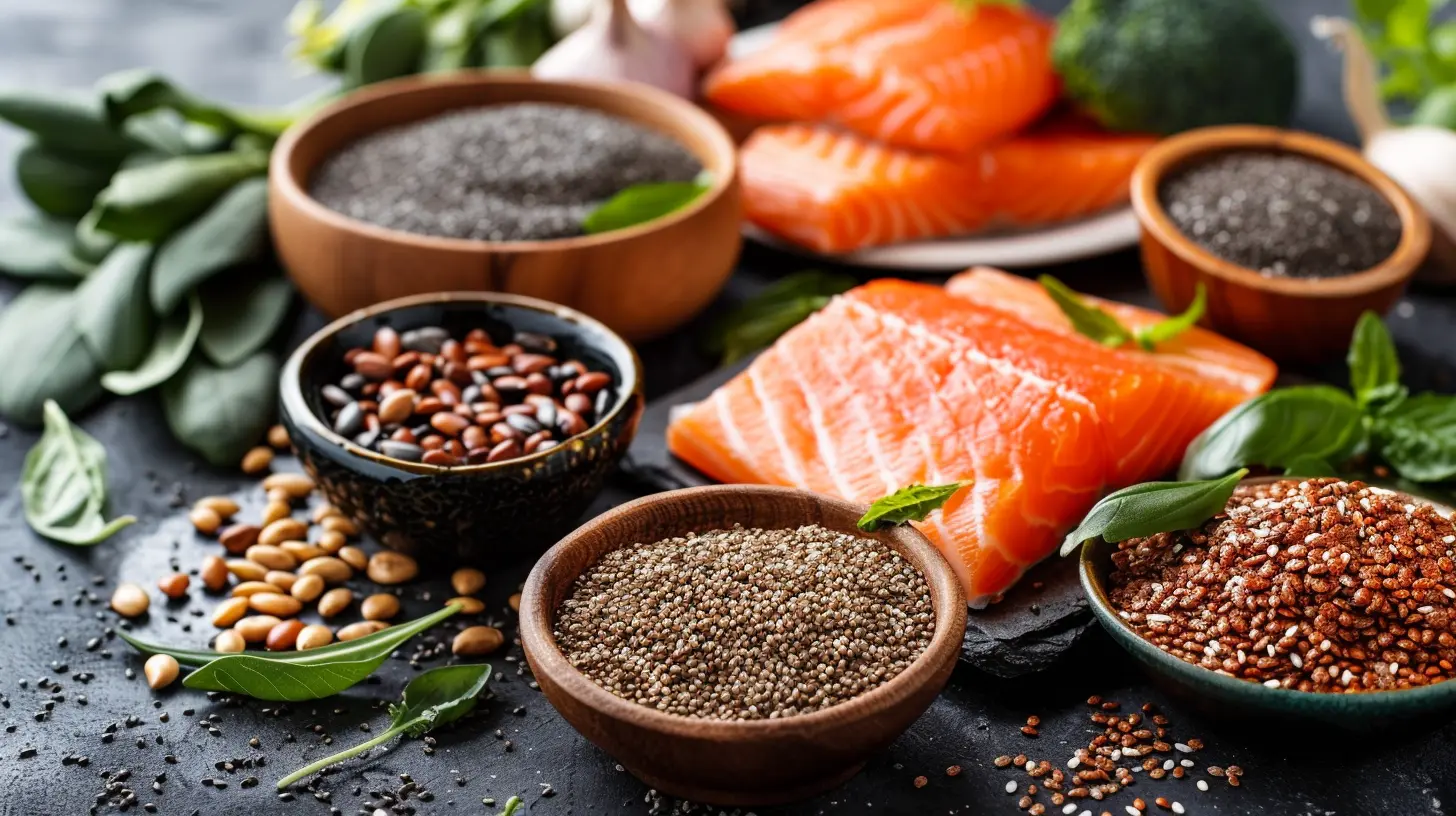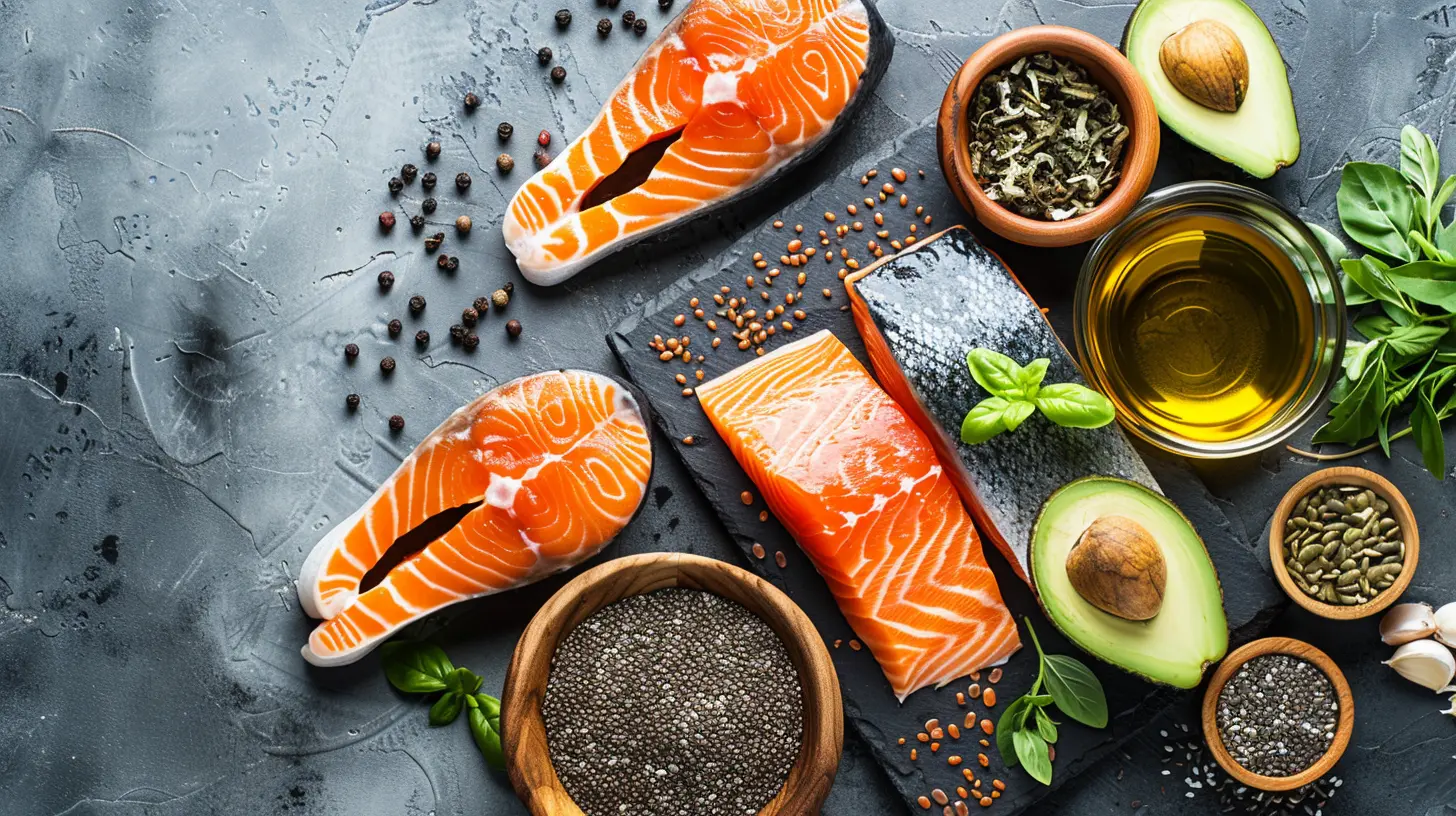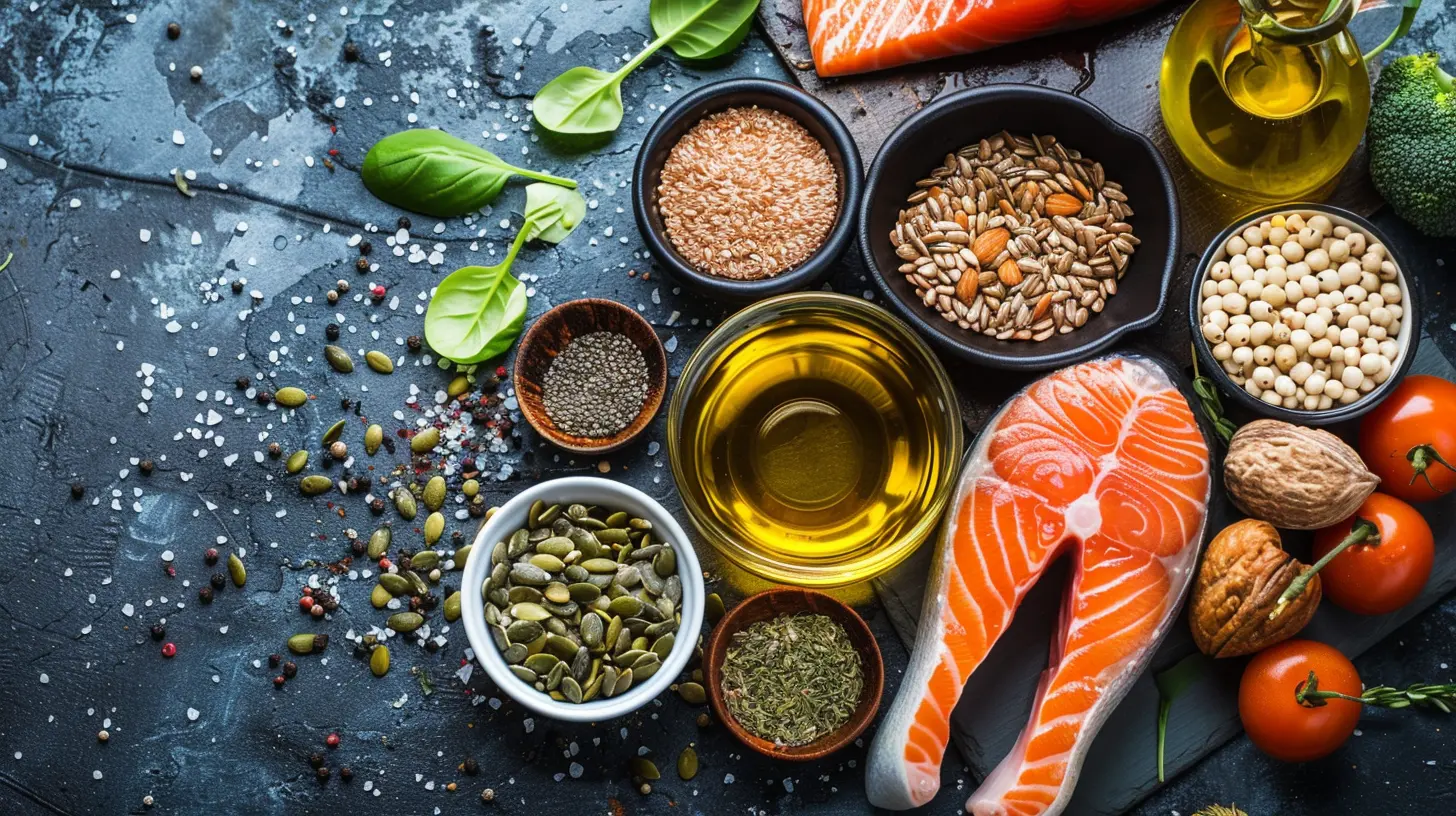DHA and EPA: The Vital Omega-3s Your Body Needs
3 November 2025
When it comes to staying healthy, some nutrients just don't get the spotlight they deserve. DHA and EPA fall into that group. These two omega-3 fatty acids are like the unsung heroes of your body — silently powering brain function, heart health, and more. If you're someone who wants to feel sharper mentally, support your heart, and reduce inflammation, then you're in the right place. We're diving deep into DHA and EPA — what they are, why you need them, and how to make sure you're getting enough.

What are DHA and EPA?
Alright, let’s start simple. DHA (docosahexaenoic acid) and EPA (eicosapentaenoic acid) are long-chain omega-3 fatty acids. That’s a fancy way of saying they’re good fats — the kind your body loves but can’t make enough of on its own. You have to get them from food or supplements.They’re both found mainly in fatty fish like salmon, mackerel, and sardines. While they often get lumped together with another omega-3 called ALA (alpha-linolenic acid), DHA and EPA offer benefits that ALA simply can't touch. ALA comes from plant sources like flaxseeds and chia seeds, but your body isn’t great at converting it into DHA or EPA. So if you think you’re covered just because you’ve added a spoonful of chia to your smoothie, think again.

Why Your Body Craves DHA
Let’s talk DHA first — this one’s the MVP for your brain. In fact, DHA makes up about 25% of the total fat in your brain and nearly 50% of the omega-3s in your neurons. That’s huge. You could say DHA is like the insulation on your brain's wiring. Without enough of it, your mental “Wi-Fi” starts to lag.Brain Development and Function
If you're a parent or planning to be one, DHA is especially important during pregnancy and early childhood. It plays a critical role in the development of the fetal brain and retina. And for adults? It supports memory, focus, and can even help ward off cognitive decline as we age.Mood and Mental Health
Ever feel foggy or just... off? Some studies link low levels of DHA with mood disorders like depression and anxiety. It's not a magic pill, but ensuring your brain has the right fuel can make a real difference. Think of DHA like oil for your mental engine.
EPA: The Anti-Inflammation Warrior
EPA doesn’t get as much of the brain credit as DHA, but that doesn't mean it's less important. Its superpower? Fighting inflammation. And in today's modern world, that's a big deal.Heart Health Savior
EPA helps lower triglycerides, reduce blood pressure slightly, and keep your arteries more flexible. It also has anti-clotting effects, meaning it supports healthy circulation and reduces the risk of a heart attack or stroke.Calms Chronic Inflammation
Chronic, low-grade inflammation is at the root of many diseases — heart disease, arthritis, even some cancers. EPA is like your body’s internal firefighter, helping to cool down the inflammation before it gets out of control.
DHA vs. EPA: What’s the Difference?
Good question — so let’s break it down.| Property | DHA | EPA |
|----------|-----|-----|
| Main Role | Brain & eye health | Inflammation & heart health |
| Found In | Fatty fish, fish oil, algae | Fatty fish, fish oil |
| Usage in Body | Structural | Signaling/messaging |
In simpler terms, DHA is like the bricks and mortar that build your brain, while EPA is the messenger trying to keep peace in the body.
How Much DHA and EPA Do You Actually Need?
This is where things get a bit murky. There’s no universal recommended daily intake for DHA and EPA, but experts and health organizations usually suggest:- 250–500 mg per day of combined DHA and EPA for general health
- 1000 mg (1 gram) or more per day for people with heart disease or high triglycerides
But here's the catch: most people don’t even come close to hitting those numbers. The average person might get 100 mg or less from their daily diet unless they’re eating fatty fish a few times a week. Spoiler alert — most of us aren’t.
Best Food Sources of DHA and EPA
So how do you get more of these amazing fats? Let’s talk food.Top DHA and EPA Rich Foods:
- Salmon (especially wild-caught)- Mackerel
- Sardines
- Anchovies
- Herring
- Tuna (opt for low-mercury options like skipjack)
- Cod liver oil
- Oysters
Yes, plant-based folks — it’s mostly from fish. But if seafood isn't your jam, don’t worry. There are ways to get DHA and EPA without swimming with the fishes.
Supplements: The Easy (And Smart) Way to Boost DHA and EPA
Let’s face it. Not all of us love fish. Or maybe you're vegetarian, vegan, or have dietary restrictions. That’s where supplements come in.Fish Oil vs. Algae Oil
- Fish oil: This is the most common source and includes both DHA and EPA in solid ratios.- Algae oil: A vegan source, and it provides DHA (and sometimes EPA). It’s actually where fish get their omega-3s — from eating algae.
Look for supplements that mention being purified, third-party tested, and free from heavy metals or PCBs. You don’t want to trade one health issue for another.
Pro Tip:
When buying a supplement, don’t just look at the total omega-3s on the label. Check how much EPA and DHA are actually in each capsule. Some brands load up on "filler" omega-3s that aren’t as effective.
Are You Getting Enough? Signs of Deficiency
It’s not always obvious, but your body will start to whisper (or shout) if it’s lacking in DHA and EPA. Here are a few things to watch for:- Brain fog or trouble concentrating
- Dry skin
- Mood swings or feelings of depression
- Joint pain or stiffness
- Vision problems
- Fatigue
Most signs are subtle, so they’re easy to ignore — but over time, the impact adds up.
DHA and EPA for Different Life Stages
Yep, your need for DHA and EPA changes over time. Here’s a quick look:Infants and Children
DHA is critical for brain and eye development. Many infant formulas are now fortified with DHA for this very reason. Kids who get enough DHA may even show better cognitive performance and behavior. Smart kiddos = happy parents.Adults
In your 20s to 50s? DHA helps with memory and focus, while EPA keeps inflammation at bay. This is the prime time to build habits that protect your brain and heart for the years ahead.Seniors
Cognitive decline and heart disease risk both rise with age. Consistent DHA and EPA intake can play a protective role, keeping you mentally sharp and physically active.
The Omega-3 and Inflammation Connection
Let's circle back to inflammation for a second because it's a huge deal. Inflammation plays a role in everything from aging to autoimmune disorders. DHA and EPA help create specialized molecules called resolvins and protectins. These cool-sounding compounds literally help “resolve” inflammation and return your body to a balanced state.Think of it like putting out a forest fire. Without DHA and EPA, your body might be stuck in a constant state of low flames — not enough to shut you down, but enough to slowly wear you down.
How to Choose the Right Omega-3 Supplement for You
With all the options out there, it’s easy to get overwhelmed. Here's a quick checklist:✅ Look for high DHA and EPA content per serving
✅ Choose triglyceride or re-esterified form for better absorption
✅ Check for third-party testing (like IFOS or USP)
✅ Avoid artificial additives or fillers
✅ Consider algae-based if you're vegan or vegetarian
And don’t forget: always store your omega-3s in a cool, dark place — they can go rancid pretty quick. Nobody enjoys fishy burps.
Final Thoughts: Your Body Needs These Fats — Period.
Let’s not beat around the bush. DHA and EPA are not optional if you want to thrive. From mental sharpness and emotional balance to heart health and inflammation control, these omega-3s are working behind the scenes to keep you running smoothly.You don’t have to overhaul your life to get more DHA and EPA. Start by adding an extra serving of fatty fish each week, or pick up a quality supplement. Little steps can lead to big benefits.
So, what are you waiting for? Your brain, heart, and future self will thank you.
all images in this post were generated using AI tools
Category:
Healthy FatsAuthor:

Laurie Barlow
Discussion
rate this article
1 comments
Christopher Cannon
I’ve always wondered how DHA and EPA specifically benefit our health. Are there particular foods that enhance their absorption, or should we rely on supplements for optimal intake?
November 25, 2025 at 5:08 AM

Laurie Barlow
DHA and EPA support heart, brain, and eye health. Fatty fish like salmon and mackerel are excellent sources, and consuming them with healthy fats can enhance absorption. While supplements can be beneficial, whole foods are generally preferable for optimal intake.


